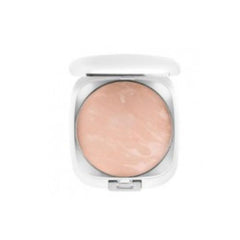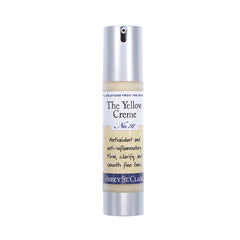Why Choose A Natural Skincare Product With Neuropeptides?

If you’ve purchased skincare products recently, you’ve probably read about peptides as ingredients in some of them.
Peptides are often considered to be miracle ingredients that can “do it all” because they are the building blocks of proteins that your skin needs to be healthy. They’re specialists at helping to reduce and prevent wrinkles, even out skin tone, fight inflammation, improve skin elasticity, boost youthfulness, soothe and prevent UV damage, heal acne, reduce scarring, and possibly even more. You name it; if your skin needs some help, peptides are probably the right tools for the job.
What you may not be aware of is that there’s a subclass of peptides known as neuropeptides that could potentially have even more far-reaching benefits for your skin—especially if your primary goal is to fight the signs of aging.
Peptides Versus Neuropeptides: What’s The Difference?
Peptides encompass a broad spectrum of amino acids that are typically generated by endocrine cells and which primarily interact with the body’s central nervous system to cause a cascade of positive changes. Neuropeptides are a narrower spectrum underneath that umbrella, which are produced by neurons and that can have a significant effect on nearby cells.
One of the effects neuropeptides can have on cells is that, when applied topically, they can stimulate the same natural processes your skin would normally undergo if it were trying to heal a wound, remain smooth and elastic, tame inflammation, and hasten tissue damage repair. These effects can be so powerful that neuropeptides are often referred to as “natural Botox” for aging skin.
How Do Neuropeptides Work?
Neuropeptides are similar to the neurotransmitters your nervous system uses to communicate with the rest of your body.
Neurotransmitters are chemicals that act as messengers, carrying information throughout your body from one place to another. Next time you touch a hot surface and the pain travels from your fingers all the way up to your brain and makes you retract your hand quickly before you get burned, you can thank your neurotransmitters for the favor.
Similarly, neuropeptides are the messengers your nerve cells use to tell your skin cells when it’s time to heal damage, bump up cell division, increase production of fatty acids, or regulate levels of inflammation.
Interestingly, they also reduce the localized production of the neurotransmitters involved in contracting your facial muscles, meaning there is some truth to the parallel between neuropeptides and Botox.
When you’re young, your skin has plenty of peptides and neuropeptides that happily do their job of keeping your skin fresh, plump, smooth, and healthy. As you age, your peptides and neuropeptides become less plentiful. They may not always be able to keep up with their assignments; that’s why wrinkles, sun damage, and discolorations start to appear as the years pass.
The good news is that neuropeptides work effectively even when they’re applied topically instead of being produced by your neurons. This opens the door for skin creams, anti-aging serums, and a host of other products to take advantage of the numerous benefits of neuropeptides. This enables you to help fight the effects of aging skin without having to ingest supplements or turn your diet upside-down.
Botox, Neuropeptides And Aging Skin: Here’s What You Need To Know
Botox is made from a toxin derived from the Clostridium botulinum bacterium. This is important to know if you’re considering for Botox injections because Clostridium botulinum isn’t your garden-variety bacterium.
When ingested in large enough quantities—for example, if you open an expired, dented can of food where this bacteria has begun to take hold and multiply, it can cause the illness known as botulism. Botulism is characterized by severe and sometimes deadly effects. It attacks the nervous system and results in muscle paralysis. This includes the muscles you use to breathe.
Botox as a skin treatment relies on small doses of toxin injected into precise areas of the skin. It’s considered relatively safe, but that doesn’t mean it’s risk-free. If performed by a qualified professional, Botox injections won’t paralyze you or interfere with your breathing. However, they can injure or inflame blood vessels and cause unintended swelling and bruising, which can detract from the intended result of improving your appearance.
When working optimally, Botox injections cause temporary facial paralysis. When you can’t move your facial muscles, your skin doesn’t wrinkle! You’ll have a fresh-faced, line-free appearance for a while, even if it means your face isn’t as expressive as it normally would be.
So when people say “nature’s Botox,” it conveys a striking image, both in a positive and a negative way.
You might imagine opening a fresh jar of skin cream containing neuropeptides, applying it, and being rewarded with a fresh, youthful appearance—in exchange for some temporary facial paralysis, much the same as you would experience if you went under the needle.
Fortunately, neuropeptides are much more gentle than their nickname suggests. You won’t lose sensation in your skin, be unable to smile at your kids, or be encumbered with that plastic, I’ve-just-had-fresh-Botox-injections look. What this means is that you’ll need to apply the product regularly and stick to a consistent skincare regimen to achieve the results you want over time.
Neuropeptides are superior to Botox because they smooth your skin naturally, without the need to deal with invasive procedures, swelling, pricey plastic surgery appointments, and the risk of complications. People who undergo Botox injections are literally asking a doctor to inject a potent, paralyzing neurotoxin into their bodies in the pursuit of youth and beauty. A safer, friendlier, low-cost, no-needle option is using skin care products that contain neuropeptides.
The argument could be made that neuropeptides may net you better results than Botox if you use them long-term. Botox simply paralyzes your muscles temporarily, so your skin doesn’t wrinkle when you make facial expressions. Neuropeptides actually work to heal your skin and restore it to its natural state of optimal functioning. You’ll see a reduction in wrinkles, certainly, but you’ll also experience benefits such as plumper skin and faster acne healing. Botox injections don’t deliver those kinds of results.
Leave a comment
Comments will be approved before showing up.
Also in Abbey St Clare Blog

The Wheel is Turning. Abbey St. Clare has Closed.
Hello Friends,
The wheel is turning. Transitions are on the horizon. It is with regret that after almost twenty years, Abbey St. Clare is winding down as retirement and a relocation take place in the near future. We will continue taking orders through September 15.

Fix These 5 Hair-Washing Mistakes For Healthier Hair
Is your hair feeling brittle? Scalp dry? Locks not as lustrous as you want them to be? It’s possible you’re damaging your hair with five hair-washing mistakes.
If you follow these guidelines, you will see significant improvement in your hair and scalp health.

Pamper Your Skin and Elevate Your Mood With Essential Oils
Have you ever caught a whiff of cinnamon and felt a boost in your mood instantly? Do you feel calmer and more at ease when using lavender lotion before bed? If you said yes, it’s not just a figment of your imagination!
Ask anybody who uses essential oils regularly, and they’ll probably agree: these natural botanicals can have powerful, positive effects on your mood and overall wellness.



